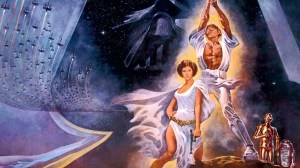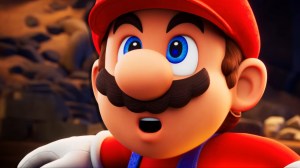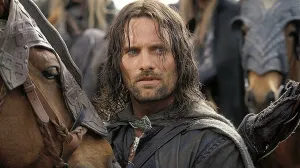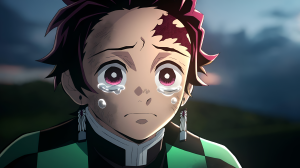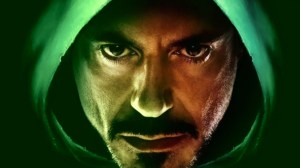
Hulk, of all the core characters at Marvel Comics, has always had a more difficult time finding a niche. The Incredible Hulk, his very first series, was cancelled after only six issues, relegating the character to guest appearances and backup stories. Over the past 60 years there have been a handful of popular comics runs from creators like Peter David and Greg Pak, but they were the exception to the rule. Both of the Hulk’s modern movie adaptations have failed to spawn sequels, making it an exception to every other franchise at Marvel Studios. In fact, the most popular the character has ever been remains the late 1970s and early ’80s when he was portrayed by Bill Bixby and Lou Ferrigno as Bruce Banner and Hulk, respectively. None of this is to say that the Hulk isn’t popular, but that the character has rarely been able to find the same success as other superheroes in his cohort. That’s what makes the debut of Immortal Hulk so impressive.
Videos by ComicBook.com
In the course of just three issues so far, the newest Hulk series, which brings the character back from the grave following his execution in Civil War II, has become a surprise hit among critics and fans. Writer Al Ewing and artist Joe Bennett (along with some guest creators) have made three very unique issues that have already surprised new and old fans alike. Immortal Hulk has quickly crafted a new take on the classic character, delivered some thrilling individual tales, and still has plenty of promise for the future. If you haven’t read any of Immortal Hulk so far, there are some very good reasons to start the next time you pick up comics.

A New Take on the Hulk
Every version of The Hulk dating back to Jack Kirby and Stan Lee’s first rendering owes a debt to Robert Louis Stevenson’s Strange Case of Jekyll and Hyde. He will always reflect some competing forms of humanity, often representing the id and ego. Even in Greg Pak’s epic “Planet Hulk,” the noble monster and leader of an army still fears the emergence of weakness from within himself in dreams and the very end of the tale. The trick with the character isn’t to reinvent the wheel, but to find an alternative point of view on this duality. That is exactly what Ewing and Bennett have done in the first few issues of Immortal Hulk.
The best point of comparison for this new version of The Hulk isn’t in Marvel Comics, but League of Extraordinary Gentlemen by Alan Moore and Kevin O’Neill. Banner and Hulk resemble their take on Jekyll and Hyde in many ways. Hulk is no longer misunderstood or simple; he is a monster that is every bit as cunning as his alter-ego, if not more so. Banner has become consumed by his own fears and seeks to aim his other self in directions where he might do some good (or, more likely, less harm). When he reflects on his status while on the run, there is a lack of confidence and intelligence that informed prior takes on the character. Now he is more like the Jekyll of League, a hostage to a much more powerful entity. Hulk has become a purposeful actor in the world, autonomous and no longer simply responding to new threats. He seeks out fights and recreates the world as he wishes it to be, often with a flair for the sadistic. There is something deeply human in this Hulk, which makes him all the more disturbing. While there are similarities to past versions of the character, this is a truly unique take on both characters and one that is as compelling as anything Marvel readers have ever seen.

Adding a Classic EC Twist
Immortal Hulk has broken the typical boundaries of new Marvel series as well with a set of three issues that each tell their own story, rather than engaging in a five- or six-issue introductory tale. The first issue looks at the aftermath of two savage crimes, the second provides a look at mad science gone horribly awry, and the last tells the same story of a hostage situation from four different points of view. The connecting thread in each of these is the presence of the Hulk, one that is often shown only from perspective of victims and bystanders. There is also a consistent element of morality plays as every story features an antagonist confronting the consequences of an evil action or misguided decision. This arrangement of small tales of terror with a moral compass are reminiscent of the best EC horror comics from the 1950s and ’60s.
It’s just as present in the layouts and storytelling as the plotting and characters. Joe Bennett is the secret weapon of Immortal Hulk, utilizing pages to build tension and terror throughout each issue. The first story utilizes a standard six-panel grid in many pages, only to expand and break those boundaries as the Hulk approaches. It builds a sense of scale that is truly frightening, a difficult accomplishment in comics. The second story contrasts space in its final pages with lots of darkness, creating a claustrophobic atmosphere and making the ironic twist really painful. Bennett frames other artists in the most recent installment with a wide variety of styles twisting the world across four different narratives. At EC Comics the real strength of the publisher wasn’t the genre itself or clever twists alone, it was all about powerful cartooning. That is what Bennett and other artistic collaborators are bringing to Immortal Hulk that makes each concept so effective.

Going Somewhere Dark and Full of Terrors
None of this is to say that Immortal Hulk is purely an anthology story. While it’s possible to pick up any of the first three issues and enjoy them independently, certain patterns are beginning to emerge when they are read together. Multiple antagonists have been affected by gamma radiation independent of their encounters with The Hulk, and mysterious messages have appeared in the background of panels. An investigative reporter has provided both an audience surrogate between issues and someone to assemble these pieces of an emerging puzzle. It is far from clear where the series is going or how this might reflect the character and themes of Immortal Hulk thus far, but there is more to this story than currently meets the eye.
That is what makes the experience of reading Immortal Hulk this summer even more thrilling. Each issue is already an outstanding example of the potential to be mined from the House of Ideas, and it’s clear there are bigger ideas coming. Fans of superhero stories are being given what already feels like an iconic take on The Hulk; fans of horror comics are being given some of the best sequences of suspense since EC Comics was killed by the Comics Code. There is a lot to love in Immortal Hulk already, and the series is only getting started.



